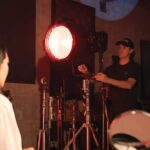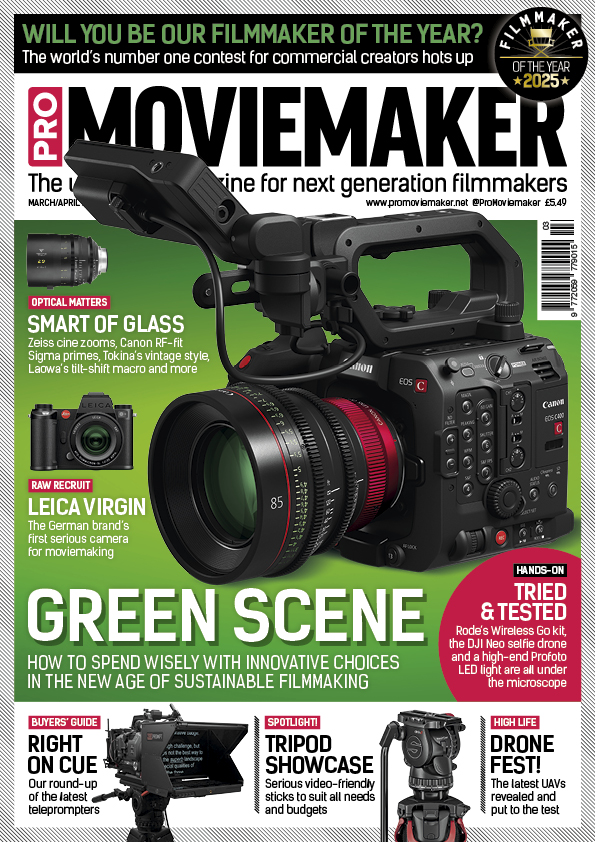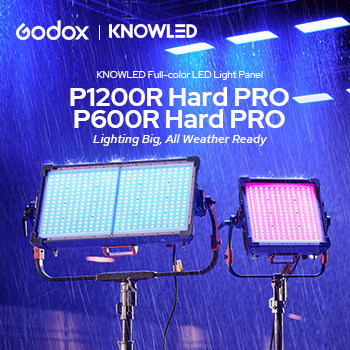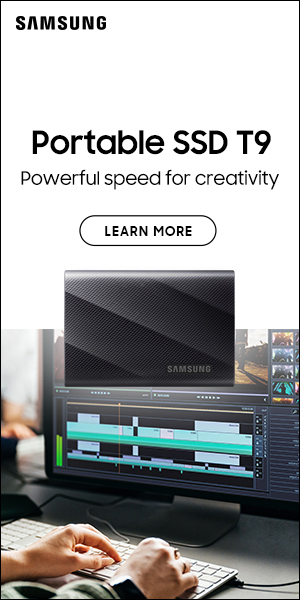
Wireless Audio Guide
Posted on Sep 18, 2024 by Pro Moviemaker
Radio Freedom
Wireless audio kits ditch the long cables to help you record super sound
It used to be relatively simple to choose a wireless audio kit – those essential gizmos that let you break free of wired mics and recorders. For years, a transmitter simply sent its audio signal to a receiver which plugged into a camera or audio recorder.
But as technology has improved, many wireless audio kits have new features that can make them even more essential. Dual-channel transmitters that broadcast to a single receiver, 32-bit float on-board recorders, swappable frequency zones to make them legal in every country, automatic audio gain setting, timecode support and more are found on many of the current crop of radio kits. We take a look at the latest and greatest wireless audio kits, and what makes them so special.
The Evolution of Excellence
As one of the pioneers of high-end wireless systems, Sennheiser’s technology continues to evolve; and the Evolution Wireless Digital EW-DP system is the brand’s fifth generation of the family. Various kits are available with different adds-ons, like the ME2 lavalier set. This complete set costs £519/$495.
The EW-DP receiver sits on the camera hotshoe, while the RX pack is belt-mounted using the included clip. A 3.5mm coiled cable connects the RX and camera.
Assembling the hotshoe attachment can be a tad fiddly, but there are simpler options based around a powerful magnetic mounting plate.
The system operates in the professional-standard UHF spectrum to give a reliable connection. UHF does a lot for sound fidelity, but Sennheiser’s components enhance the sound quality. The 134db input dynamic range is a claimed industry standard, while latency clocks in at 1.9ms. With 24-bit digital audio and a flat 20Hz-20kHz frequency response, the EW-DP delivers clear, accurate audio reproduction.
Where the EW-DP system really excels is in usability. Simple, essential functions are accessed by a clear OLED display, navigated using directional and set buttons. There’s also a sync button to avoid diving into menus. Connection between TX and RX is virtually immediate and rarely needs resetting.
The system offers guidance when needed, with Sennheiser’s Smart Notifications detecting errors during use and offering suggested fixes. If you’d rather handle set-up, monitoring and adjustments remotely, it’s easy to use the Smart Assist app for smartphones.
The Sennheiser EW-DP system is a quality package, even if it lacks some of the latest features like 32-bit float internal recording. It’s a professional system that’s easy to use and produces reliably excellent
sound, which is what it’s all about.
A new Icon of affordable audio
Icon Pro Audio’s new Airmic Pro looks strikingly similar to several competitors’ products, but comes with a very attainable price of just £149/$159. For that, you get two transmitters and a receiver in the charging case. The transmitters have high-quality omnidirectional condenser microphones built in, with a claimed 115db of SPL, which surpasses many rivals by up to 15db. The RX units have jacks so you could
use a lav mic – but this is not included.
With a 250m/820ft range, the receiver has an OLED touchscreen display to set mic gain, monitor output levels and adjusting noise cancellation settings.
The Airmic Pro comes complete with a set for use with cameras or Android and iPhone.
The units are made to attach to clothing using Airmic Pro’s built-in magnet system – or cameras and mic stands. The Airmic Pro transmitters supply eight hours of continuous use each, with a further two full charges ready in the included charging case.
A unique feature is that the Airmic Pro receiver can stay connected to a mobile phone in playback mode, eliminating the hassle of disconnecting and reconnecting.
For international travellers
Deity’s Theos kit is perfect for anyone who regularly travels to different countries and wants a highly advanced digital wireless system that works everywhere. The £999/$1090 kit features swappable frequency ranges based on the user’s phone’s GPS, making it easy to move between countries without any issues.
The Theos kit works in the UHF radio spectrum rather than the more crowded 2.4GHz band, providing a more reliable transmission with a range of up to 91m/300ft.
The kit includes one receiver and twin transmitters for a fast and easy remote-controlled workflow when interviewing two talking heads.
Each transmitter has a built-in recorder featuring both 24-bit and 32-bit float formats. Selecting the 32-bit option eliminates the need to set levels, as the backup files will record it all without clipping. Audio is saved to a micro SD card up to 128GB.
The built-in recorder boasts a self-noise level of just -130db, like many top audio recorders.
The Theos transmitter can wirelessly sync with Deity’s TC-1 timecode generator, ensuring backup WAV files align with the master file in post – ideal for working with multiple cameras. It can also be synced via the 3.5mm jack when using third-party timecode generators.
The dual-channel receiver is designed to be camera-mountable and compatible with mobile devices. It has an aluminium chassis with twin SMA antenna ports, so damaged aerials can be cheaply replaced.
Power is supplied by internal 3000mAh lithium batteries, which last for 14 hours in the transmitter and around ten in each receiver. They are recharged via the USB port, which can also provide external power for long sessions. AA batteries can be fitted, lasting seven hours.
The Theos kit can be remotely controlled by the Sidus Link app that also controls Aputure and Amaran lights.
When it’s time to go pro
Rode’s popular and compact Wireless Go system has evolved into the Wireless Go II kit, which includes a second transmitter unit, internal recording, extended wireless range, furry windshields, a charging case and lav mics.
But the audio expert’s latest system is even more high-end: the £348/$405 Wireless Pro kit. It includes two slightly larger transmitters and a single receiver in a charging case, a 3.5mm camera lead, a USB-C cable for charging, a USB to Lightning cable, USB TRS to TRS cable, two furry windshields, a neoprene slip case, two high-quality lav mics with furry covers and tie clips, two magnetic Magclips and a separate accessory case. It also features 32-bit float technology that gives incredible dynamic range so you don’t need to set a gain level.
This 32-bit sound is only in the audio recorded in the transmitters’ own internal flash memory – not on the signal sent to the wireless receiver and recorded in camera. To set it and access the files, you must use Rode’s free software that also gives access to firmware updates. As each transmitter can record seven hours of uncompressed audio, which uses more memory than in the old Wireless Go II system, storage has been upgraded from 4GB to 32GB.
The Pro units now also boast locking ports for the cables. Each transmitter can have its own audio level set separately. There’s also a clever auto-gain, which uses Rode’s Intelligent Gain Assist technology.
The Pro units now generate timecode, too. While this isn’t a full system that can be locked to an external timecode generator, it allows the units to be locked to the audio recorded by the camera, simplifying the use of sound recorded internally. There’s also a headphone port to allow for real-time monitoring.
Plus, Rode includes a pair of its Lavalier II mics you can use instead of the built-in omnidirectional mics. These give a noticeable improvement in audio quality.
If you really DISLIKE cables
Many audio units are called wireless, but use a cable to send the signal from the receiver to the camera and often require a wired lav plugged into the transmitter. DJI’s new £309/$349 Mic 2 can be used just like this if desired, but also has built-in mics in the transmitters and offers cable-free integration with other kit.
This isn’t limited to DJI’s own kit; it also includes Sony’s latest mirrorless and cinema cameras with the MI Shoe, using an optional connector. This means the camera supplies power to the receiver and you can control it from the camera.
Whether you use it on a Sony or not, the DJI Mic 2 has an extended battery life compared to the original version, a new control screen, plus 32-bit float internal recording and intelligent noise-cancelling, which reduces environmental noise.
Each transmitter has 8GB of internal storage, offering up to 14 hours of uncompressed 48kHz/24-bit audio as well as 32-bit float internal recording. As an added layer of protection, the DJI Mic 2 offers a Safety Track feature, which records a second track at -6db alongside the primary audio track, safeguarding against unexpected audio level spikes.
The DJI Mic 2 is easy to use, as opening the new metal charging case wakes up the kit, automatically pairing the receiver and transmitters. The kit can also be connected to the DJI Osmo Action 4 and Osmo Pocket 3 mini gimbal via Bluetooth, while offering compatibility with other recording devices through USB-C and Lightning adapters, as well as a 3.5mm TRS analogue output.
A 1.1-inch OLED touchscreen, paired with a manual dial, offers access to adjust volume, gain, brightness and more settings. There’s a maximum audio transmission range of up to 250m/820ft in open, unobstructed environments. Each transmitter and receiver has a six-hour operating time, which can be extended to 18 hours with the charging case.
Blinking great value
The popular Blink 500 B2 wireless audio kit has been upgraded to the Blink 500 B2+ by sound specialist Saramonic, priced at £129/$129 for a twin-mic kit that comes with a single receiver, all included in the charging case.
Equipped with USB-C, a Lightning connector, 3.5mm TRS and 3.5mm TRRS connectors, the Blink 500 B2+ is compatible with most cameras and smart devices.
A new feature allows the single receiver to feed the signal to two recording devices simultaneously. This is perfect for streaming on two platforms or capturing backup recordings effectively.
Battery life is also improved, as the system can record for up to 20 hours. The charging case provides one full cycle of recharge to extend the time to 40 hours.
The Blink 500 B2+ mic system comes with a two-level noise reduction function and low-cut filter. There is a selectable mono, stereo and safety track output.
It’s a Shure thing
Shure makes some of the most prominent audio products, favoured by pop stars worldwide. This includes not just its mics, but also the wireless tech used to transmit signals to the soundboard.
All that know-how has gone into Shure’s SLX-D Digital wireless audio range, which includes the new £389/$379 SLXD5 Portable Digital wireless receiver, the £255/$229 SLXD1 bodypack transmitter, as well as the £349/$349 SLXD3 Plug-On transmitter.
The SLXD5 receiver is the heart of the system and can be installed on-camera via the provided coldshoe mount or placed in an audio bag used by a sound recordist. It uses IR Sync for easy pairing with transmitters and offers Multi-Mic Mode for managing and monitoring multiple sound sources from a single receiver.
The SLXD3 Plug-On transmitter transforms any XLR source into wireless, including dynamic and condenser microphones. It offers phantom power and is ideal for wireless transmission from boom-mounted shotgun mics.
Shure claims that gain adjustment on the transmitter isn’t needed due to its 24-bit digital audio with a dynamic range of over 118dB. The system supports 32 channels per 44MHz band and has a 100m/330ft transmission range. The SLXD5 receiver scans for the best frequency and pairs with the transmitter via IR Sync in seconds.
Both the SLXD3 and SLXD5 boast bright OLED screens to monitor battery life, audio and RF quality and frequency tuning. Both are compatible with Shure’s rechargeable accessories, including the SB903 lithium battery and accompanying charging bays. Both SLXD5 and SLXD3 can be powered and charged via USB-C.
A great partner to the system is the Shure Duraplex DL4 lav mic, which comes with a Lemo-style fitting. It’s an omnidirectional lav mic that oozes quality in terms of build and audio. You ‘Shure’ are getting top stuff for your money.
Honey, I shrunk the mic
Hollyland’s Lark M2 is the smallest wireless dual-mic system on the market, featuring coin-sized transmitters. Aimed at content creators seeking a compact, no-fuss solution, it offers two kits: one for cameras and one for smartphones.
This wireless lavalier mic system has a tiny receiver and charging case that juices up all three components. But being so compact, there are some compromises of course. The TX units have no space for a 3.5mm jack, so you can’t use a lav mic and must rely on the units’ own internal omnidirectional mics. They also don’t have a clip, so are fastened on by a magnet.
The transmitter units have a single yellow button for settings, but it’s best to use the Lark Sound app for adjustments like noise cancellation levels.
The receiver module offers more control over audio recording with a large gain dial, displayed on LED indicators. There’s a 3.5mm output for the camera, a USB-C port to connect to a computer, a pairing button and a mode-switching button. Pushing both toggles between mono and stereo. The £118/$139 Lark M2 delivers 48kHz/24-bit audio output with ten hours of shooting at a range of up to 300m.
This feature was first published in the September/October 2024 issue of Pro Moviemaker.










